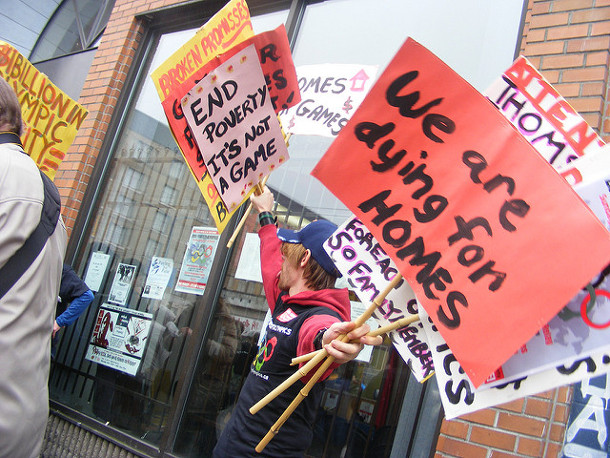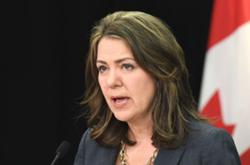Canada is failing to advance social equality and justice on many fronts, says a new report from the United Nations.
The report, a review of the country's performance over the last 10 years, shows Canada is not measuring up to the UN International Covenant on Economic, Social and Cultural Rights it signed onto in 1966, according to national anti-poverty advocate.
The review was conducted through the UN Committee on Economic, Social and Cultural Rights, which examines a nation's progress on ensuring a dignified quality of life for its citizens, including, for example, citizens' access to housing or safe working conditions.
Leilani Farha, executive director of Canada Without Poverty, said the review shows Canada is not doing enough to honour its commitment to upholding the covenant.
"You sign and ratify these things as government, but the action has to take place at home," Farha said, noting the review is "blunt" about taking Canada to task for not meeting its obligations.
The 11-page document lists some positive developments, but overall lambastes Canada for its treatment of temporary foreign workers as well as women's rights.
It notes that Canadian women are still over-represented in part-time and low-paid work, and repeatedly cites failures regarding Indigenous people and African Canadians and the social disparities they face.
Prior consent for Indigenous people regarding the use of their land has not been protected by Canada, the review found.
The UN committee also found that Canadians are having difficulty accessing employment insurance, and it is concerned about the "significant amount of people living in poverty" in the country, calling for a national anti-poverty plan.
The review also comes down hard on increases to tuition fees across the country, while governments strip education funding.
Access to justice a key: review
One barrier to a more social and economically equal Canada, the review found, is that Canada does not have a justice system that allows its citizen to fight for social rights.
"The Committee is concerned that, despite certain promising developments and the Government's commitment to review its litigation strategies, economic, social and cultural rights remain generally non-justiciable in domestic courts," the review reads.
That affects people who are homeless, disabled, Indigenous or otherwise marginalized, who have little legal basis to argue for their interests, said the UN committee.
It asks Canada to find a way to incorporate into its legal system measures that could be used by litigants to fight for the rights that the country agreed to uphold when it signed the covenant.
That could include speaking to marginalized groups in an effort to create ways the Charter could protect economic and social rights.
Farha agreed with the committee, and said Canada needs to start addressing issues like housing from a philosophy based on human rights.
"(That includes) the interpretation of the Charter, the way in which we do finance, the way in which we roll out social policies and programs," she said.
Currently, Farha said, government lawyers will argue in court against granting Charter protection for social rights, such as considering homelessness a threat to one's life.
Farha said she is optimistic the Liberal government will take the report seriously and try to rectify some of the issues raised, particularly in light of Prime Minister Justin Trudeau's promises to support human rights at home and abroad.
"I would think they would pay attention to this and be interested and take on board these recommendations," she said. "They actually have a legal obligation to do so."
The report also listed some positive steps taken by Canada, such as the commitment to hold an inquiry into missing and murdered aboriginal women. ![]()
Read more: Rights + Justice, Politics















Tyee Commenting Guidelines
Comments that violate guidelines risk being deleted, and violations may result in a temporary or permanent user ban. Maintain the spirit of good conversation to stay in the discussion.
*Please note The Tyee is not a forum for spreading misinformation about COVID-19, denying its existence or minimizing its risk to public health.
Do:
Do not: